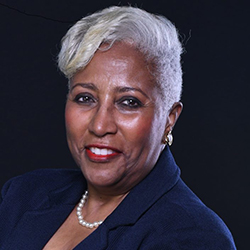
As a new user of AI — artificial intelligence — the Houston Defender Network is undergoing a phenomenal awakening. Earlier in the year, I had real concerns about the new technology as it relates to my business and was very vocal about my concerns.
Although the concerns are still valid, the advantages AI offers are cutting edge, with vendors like Tansa providing a text editing tool for publishers and Hey Nota taking the pain points out of publishing.
Don’t get it twisted. AI is not writing our stories, but it is changing the way we do business. I’m embracing this technology with caution, curiosity, admiration, and fear.
Artificial Intelligence has been described as natural language processing, machine learning, robotics, reinforcement learning, computer vision, and speech recognition rolled into one. According to a HubSpot study, “62% of business leaders say their company has already invested in AI and automation tools for their employees to leverage: Of those, 71% report positive ROI, and 72% say AI and automation make their employees more productive.”
Many industries are using AI to advance their products and services. Recently, I attended a University of Texas M.D. Anderson Cancer Center board meeting unveiling the Institute for Data Science in Oncology, uniting data science approaches with the institution’s clinical and scientific expertise to address the most urgent needs of cancer patients. This transformative effort is just one example of how AI can assist in finding answers to overcoming cancer.
The opportunities and challenges AI presents cover the gamut.
THE GOOD: AI makes life easier, helps with operational efficiency, cuts costs, and allows a company to be more competitive.
THE BAD: AI could replace the human worker, cause inaccuracies or misinformation, and become a crutch for those not verifying the information.
THE UGLY: AI could perpetuate historical biases and prejudice based on the source, and in the wrong hands, AI could be weaponized destroying reputations and lives.
Black legacy media, should explore the opportunities and challenges of AI and look closer at the benefits of full participation in this next evolution of digital media.
AI can open the door to valuable insight, harnessing the power of data. We are talking about reshaping industries and our daily lives. But we need to remember to balance human creativity and AI’s capabilities in accomplishing tasks that would be difficult for either alone.
For these reasons, the trusted, respected, and reputable businesses of service and longevity in the Black community, Black legacy media, should explore the opportunities and challenges of AI and look closer at the benefits of full participation in this next evolution of digital media. This may be the new battlefield to confront the digital gap or the new frontier for leveling the playing field.
For those looking for a good investment in the future and sustainability of the new Digital Black Press, AI is the way to go, and Word In Black — which is a collaboration of 10 Black media companies across the country — is a good start.
Don’t wait, because the train has left the station. As we continue the fight to close the digital divide, this is one step in the right direction. No one has covered Black America like the Black Press, who continues to preserve the past, record the present, and advocate for the future.

The reality is AI consists of the good, the bad, and the ugly. It is our responsibility as a society to maintain the balance between AI and humanity and work for accuracy, access, and equity for Black America.
Sonny Messiah Jiles is CEO of the Houston Defender Network.















